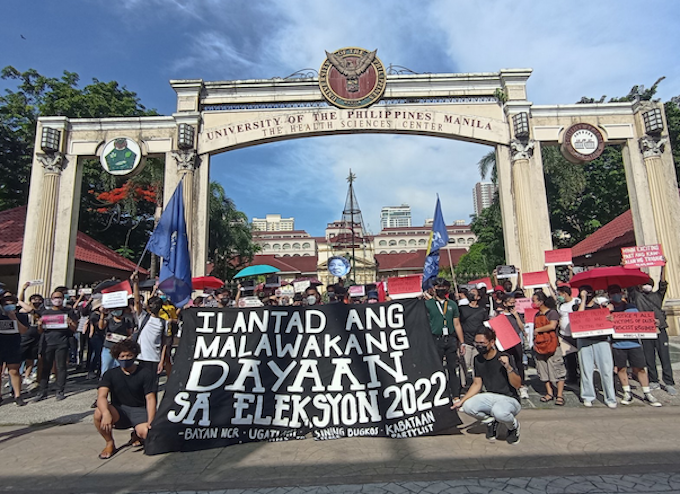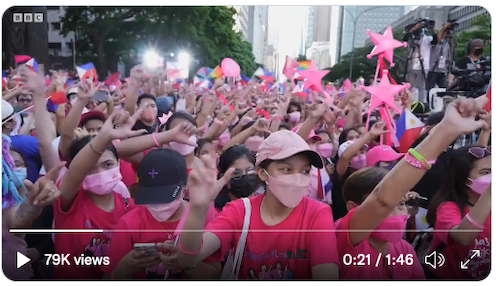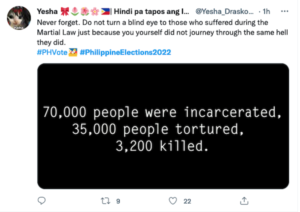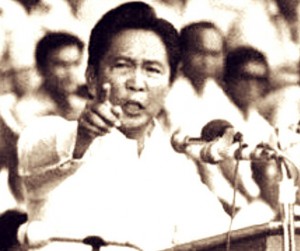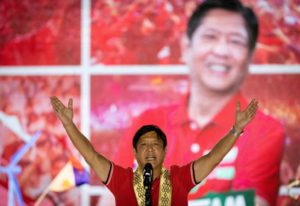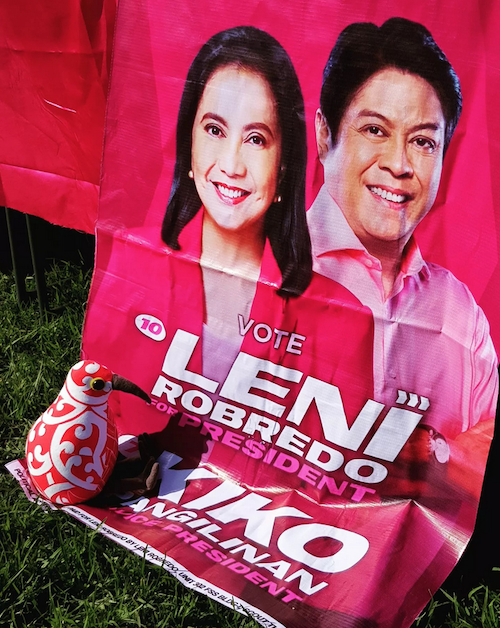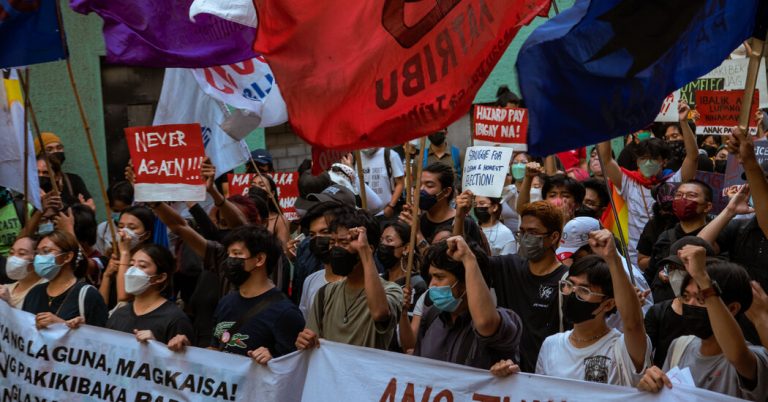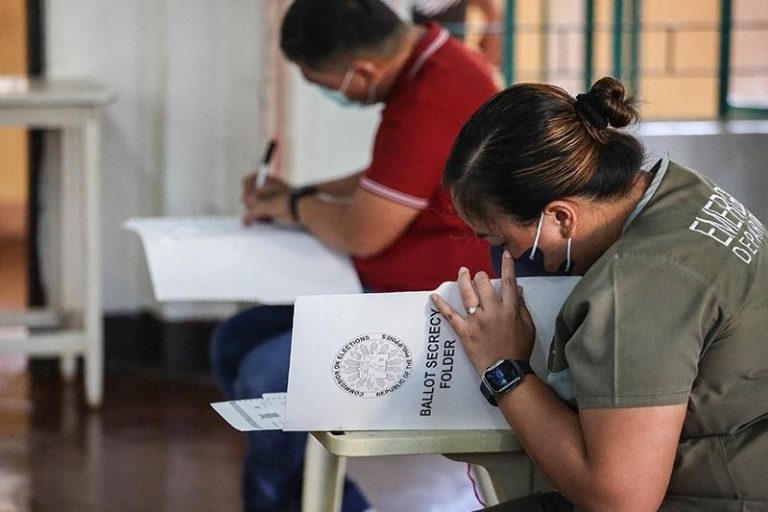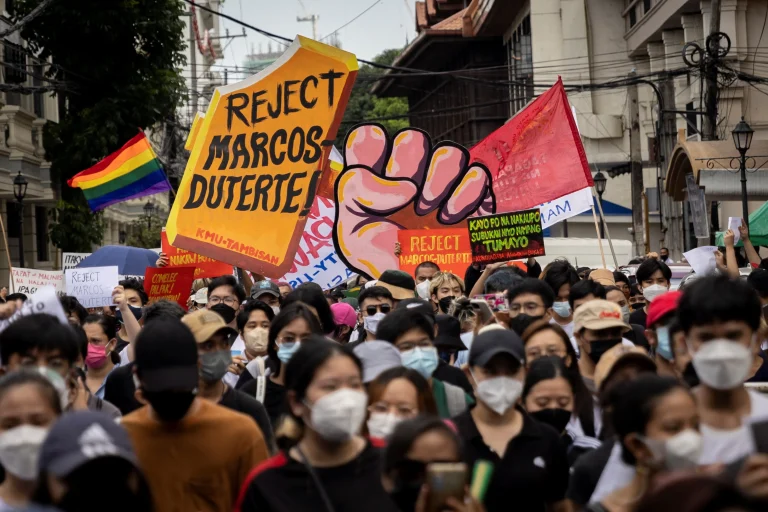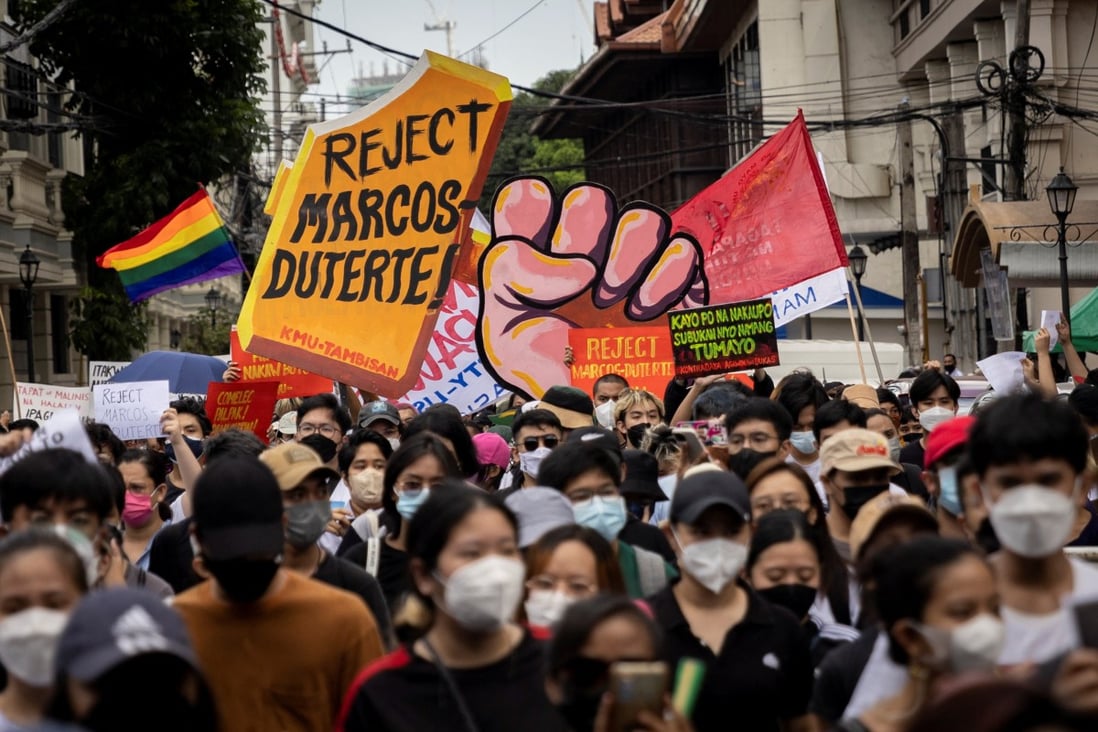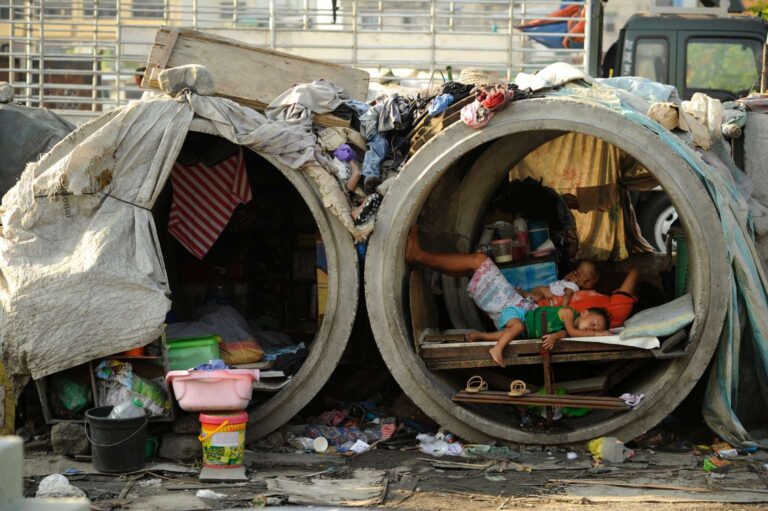May 17, 2022, Lian Buan
The Supreme Court is on a writing break and is set to resume only in June when Congress is presumably already done with canvass. But time is not an issue, says one lawyer.
MANILA, Philippines – The legal fight has officially reached the last resort, the Supreme Court, as civic leaders backed by human rights lawyers, asked one last time to cancel the certificate of candidacy of Ferdinand “Bongbong” Marcos Jr. and declare second placer Vice President Leni Robredo as the winner.
Having been denied by the Commission on Elections (Comelec) en banc on May 10, the group of former Supreme Court spokesperson Ted Te filed a petition for certiorari before the Court on Monday, May 16, a copy of which was released to media on Tuesday, May 17.
In a 70-page pleading, the group of Te with the backing of other human rights lawyers tried to convince the High Court justices to have a different appreciation of their arguments.
If the SC justices rule in their favor and cancel the COC of Marcos, Te’s petition said, citing a previous ruling, “The second-placer in the vote count is actually the first-placer among the qualified candidates.”
The formal request of the petition is actually to issue a temporary restraining order (TRO) or stopping the canvass of votes for Marcos, grant their petition, and declare Marcos’ candidacy as void.
Congress is expected to declare Marcos winner of the presidential election by the end of May, if we were to follow the timeline for President Rodrigo Duterte in 2016. Marcos has a bigger victory margin than Duterte, leading with 31.1 million votes compared to Robredo’s 14.8 million votes in partial unofficial count with 98.35% votes transmitted.
But the Supreme Court is on a writing break, and is set to resume sessions only by June.
Election lawyer Emil Marañón, who was counsel for Robredo in the now junked vice presidential electoral protest filed against her by Marcos, said time is not an issue for the Supreme Court.
“Even if Marcos has already sworn and assumed office, the Supreme Court would still have residual jurisdiction to rule on whether or not he committed material misrepresentation in his Certificate of Candidacy and order its cancellation, if it finds basis,” said Marañón.
“In that case, votes cast in Marcos’ favor will be treated as stray and not be counted. And whoever gets the highest number of votes after subtracting the stray votes, gets to be proclaimed President,” Marañón added.
The challenge is also to convince the Supreme Court full of Duterte appointees not to be passive on the issue, as one of the potential rulings could be to respect the “will of the people,” in short, to listen to the will of the 31 million voters.
Te’s petition said: “A candidate’s putative election victory cannot subsequently cure his ineligibility. Elections are more than just a numbers game such that an election victory cannot bypass election eligibility requirements.”
Arguments
The group’s main argument is this: Marcos’ conviction for failure to file income tax returns in 1997 has made him ineligible to run for public office, and knowing this, he still declared himself in his COC to be eligible which is material misrepresentation.
The Comelec junked this case saying that the version of the tax law applicable to Marcos did not perpetually disqualify him from holding public office, and therefore Marcos did not misrepresent in his COC.
A contentious issue is the year 1986.
Marcos was convicted of failure to file ITRs from the years 1982 to 1985. The Comelec said the prevailing tax law at the time was the 1977 tax code which did not require mandatory prison time for offenders, and did not impose automatic perpetual disqualification as penalty. Prison time is important because conviction of an offense with more than 18 months of imprisonment is a ground for disqualification.
But what about the taxable year 1985, the ITR of which was supposed to have been filed in March 1986? And by March 1986, there was already a new tax code which mandated prison time and imposed automatic perpetual disqualification.
The Comelec said by March 1986, Marcos was no longer a public officer because their family had fled to Hawaii February that year.
Te’s group disagreed, saying in the petition, “Nowhere in Respondent Marcos, Jr.’s seven-page Answer is there a denial that he was a public official at the time the criminal violations of the [tax code] were consummated.”
“Marcos Jr.’s status as a public officer on March 18, 1986 is not only fact, it is judicial truth that he never questioned on appeal, and which may no longer be revised even by COMELEC without violating res judicata and the hierarchy of courts,” said the petition.
FMJ – Petition for Certiorari – Buenafe, et al v COMELEC.docx
“It is ironic that Respondent Marcos, Jr. now claims that he was no longer a public officer after EDSA 1 when his own father Marcos, Sr. repeatedly insisted that he was still the sitting President of the Philippines and “denounced the Government of Corazon C. Aquino as ‘a plain and simple dictatorship,” said the petition.
Marcos or his spokesperson have not made any comments yet to the petition. – Rappler.com
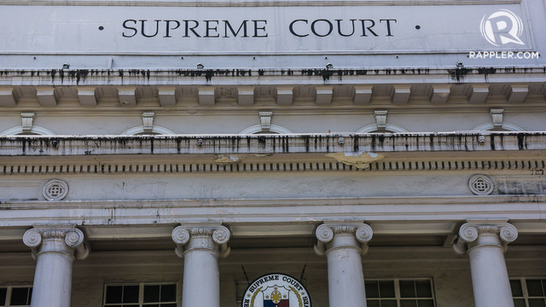
![[New School] Marcos’ victory is the price of elite democracy [New School] Marcos’ victory is the price of elite democracy](https://pinoyabrod.net/wp-content/uploads/2022/05/POOR-PINOYSa-768x432.jpg)
